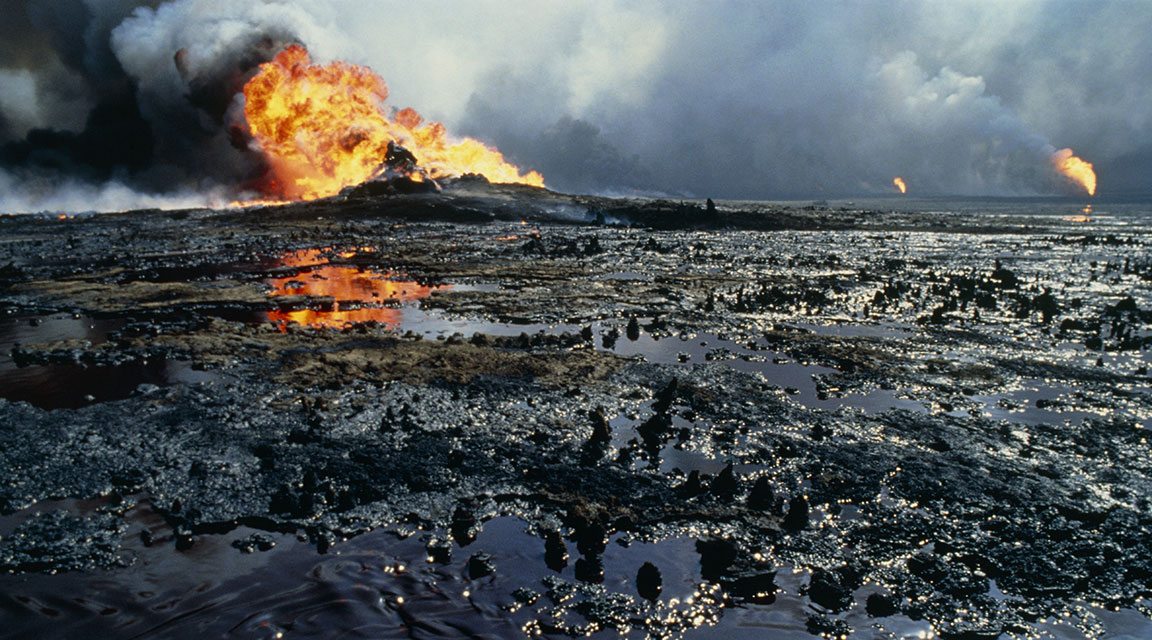

The Iraqi-funded remediation project is estimated to be worth $3bn
Companies bidding on the project management contract for the $3bn post-Gulf War environmental clean-up have been given more time to work on proposals.
State upstream operator Kuwait Oil Company (KOC) tendered the project management contract in April, and invited 71 companies to participate in the bidding process for the contract to oversee the clean-up of contaminated soils and unexploded ordnance left behind by retreating Iraqi army forces during the 1990-91 Gulf War.
The new bid submission date for the Kuwait Environmental Remediation Programme is 30 July 2017.
Weve extended the bid submission date by two weeks, said Saad al-Saad, senior technical consultant with Kuwait National Focal Point, which oversees the remediation works.
He confirmed that the list of pre-qualified companies remained unchanged.
Approximately 114 square kilometres of Kuwaiti desert surface remains contaminated by the burning of nearly 700 oil wells, which were set on fire by the troops forced into a retreat by the US-led operation Desert Storm in 1991.
The fires, which burnt for nearly 10 months clouded Gulf skies with soot rising up to 22,000 feet, caused widespread environmental land and air issues.
Efforts to clean up wet and dry oil lakes, formed by discharge from damaged well heads, oil trenches filled with crude by Iraqi forces, spills near aquifers, as well as unexploded ordnance, has taken a long time.
According to the latest tender, pre-qualified firms will be contracted to provide project management and consultancy services to oversee environmental remediation as well as restoration projects in the Northern and South Eastern parts of the country.
Among the pre-qualified bidders are firms from South Korea, including SK Engineering, GS Engineering and Samsung Engineering, the US Halliburton, Indias The Energy and Resources Institute, Italys Saipem, Canadas SNC Lavalin as well as the UKs Atkins.
The scope of the project includes:
- Clearance of unexploded ordnance prior to remediation of oil lakes, contaminated piles, oil spills and trenches;
- Propose sound remediation and contracting strategies and plans. Carry out execution of the remediation projects, using the most reliable remediation technologies either through single or combined technologies (treatment trains);
- Propose re-use, recycle or final disposal strategies, plans and carry out execution of projects for materials that cannot be remediated in a sustainable manner;
- Construction of engineered landfills and temporary remediation areas;
- Excavation and remediation of oil-contaminated piles, heavily contaminated portions of dry and wet oil lakes, oil trench areas and oil spills;
- Disposal of excavated materials in newly constructed landfills and temporary remediation or disposing areas whenever determined that materials are not suitable for any remediation or re-use treatment;
- Mixing of the contaminated soil from piles and dry oil lakes with the liquid sludge in wet oil lakes to allow easier handling of wet oil lake contents;
- In-situ remediation of remaining contamination beneath oil lakes;
- Restoration of surface topography by backfilling excavated areas with soil from landfill construction or elsewhere
In August 2015, MEED reported that as part of the remediation rogramme, local firm Alghanim International had undertaken clean-up of nearly 500,000 cubic metres of contaminated soil from the south east of the country. It had also undertaken clean-up in the northern areas of Kuwait.
Two landfills have also been filled over the last couple of years.
Around 2.2 million cubic metre landfill facilities have been constructed in the north as well as south-east of Kuwait, with around 2.5 million cubic metres of contaminated soil from dry and wet lakes as well as other affected areas excavated and deposited in landfills over the last five years.
The remediation programme is funded by the United Nations Compensation Commission, which receives five per cent of Iraqs annual crude oil revenue as war reparation. The commission has so far received $52.4bn, but Baghdad has deferred its final reparation of $4.6bn, due in 2015 to 2017, as it faced a cash crunch due to fall in oil prices and its ongoing battle with the so-called Islamic State of Iraq and Syria (Isis).
You might also like...

Iraq signs deal to develop the Akkas gas field
25 April 2024

Emaar appoints beachfront project contractor
25 April 2024

Acwa Power signs $356m Barka extension
25 April 2024

AD Ports secures Angola port concession agreement
25 April 2024
A MEED Subscription...
Subscribe or upgrade your current MEED.com package to support your strategic planning with the MENA region’s best source of business information. Proceed to our online shop below to find out more about the features in each package.




